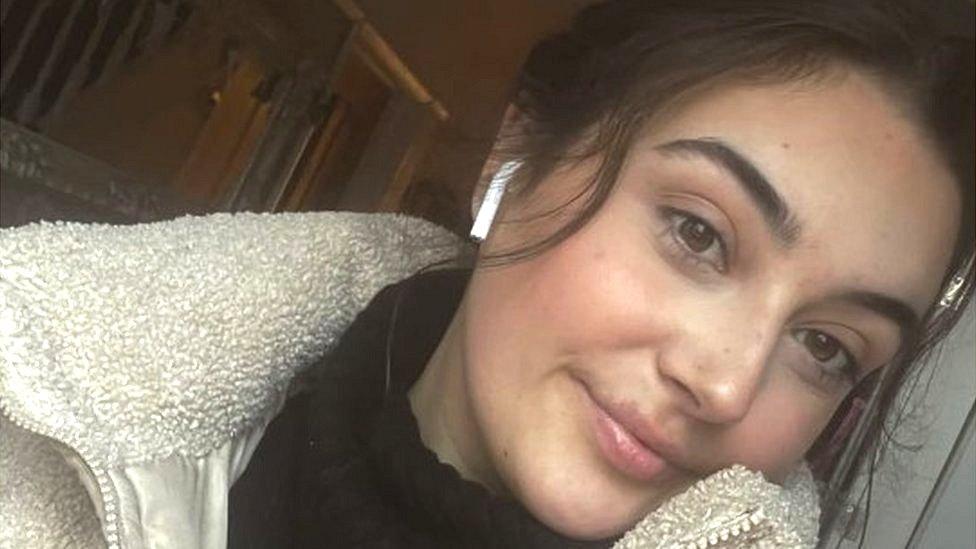Mental health: Should driving instructors become therapists?
- Published
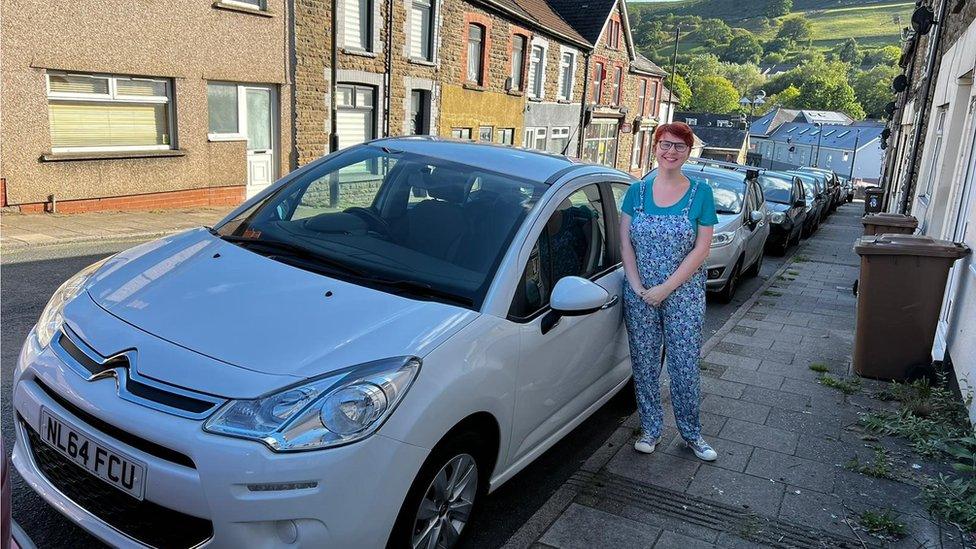
Emma Lamorte recently passed her test and says support from her instructor was "invaluable"
"Being able to offer advice is just as important and urgent as first aid."
Driving instructor Louise Dale has heard some "horrific stories" in her car and said professionals needed more support to help young people struggling with mental health.
She has had training with Samaritans to help "formalise what we already do".
Samaritans said listening could "save lives" while the Welsh government said an extra £1.4m had been put into a mental health services programme.
Louise has been an driving instructor for 12 years.
She said she "jumped at the chance" of training, provided by her insurance company Veygo, but said it needed to go further to equip instructors or other professionals who work alone with clients to help deal with the rising problem of people's mental health.
She said her biggest concern for professionals dealing with young people is knowing how and where to refer them on to.
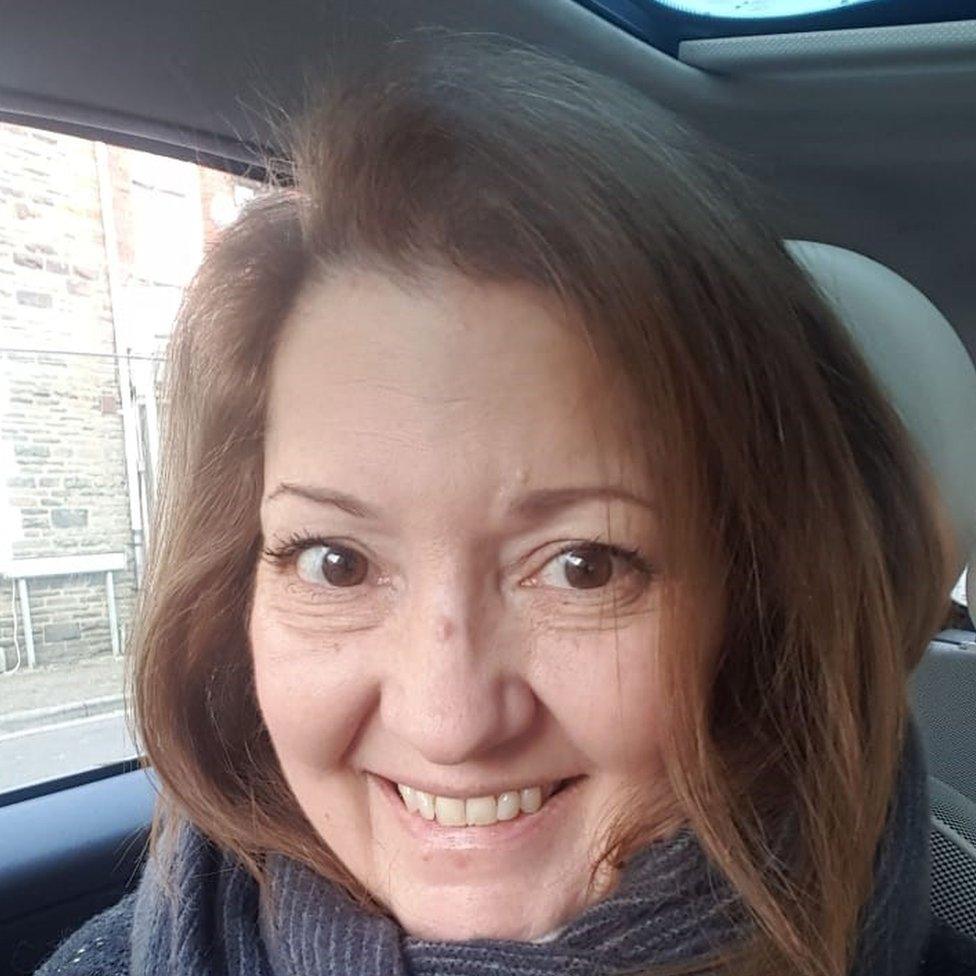
Louise Dale has been an instructor for 12 years and says training could help "formalise what we already do"

"It's kind of a standing joke at the test centre where we say 'oh, that's £30 for the lesson and 45 for the consultation'," she said.
"I think because people jump in the car and over the course of the weeks that we're training together they feel like that we're friends and it's a safe space and then they start to open up gradually."
She said over 50% of her students have conversations with her about their mental health and she worried in the past about what to do or how to respond.
"Without going into detail I see a lot of young people with social anxiety.
"They're worried about school, their appearance and there's the normal driving worries.
"I have different issues, people with personal problems at home, maybe right the way through to issues that I really would recommend speaking to the police about.
"I've had some quite horrific stories in my car."
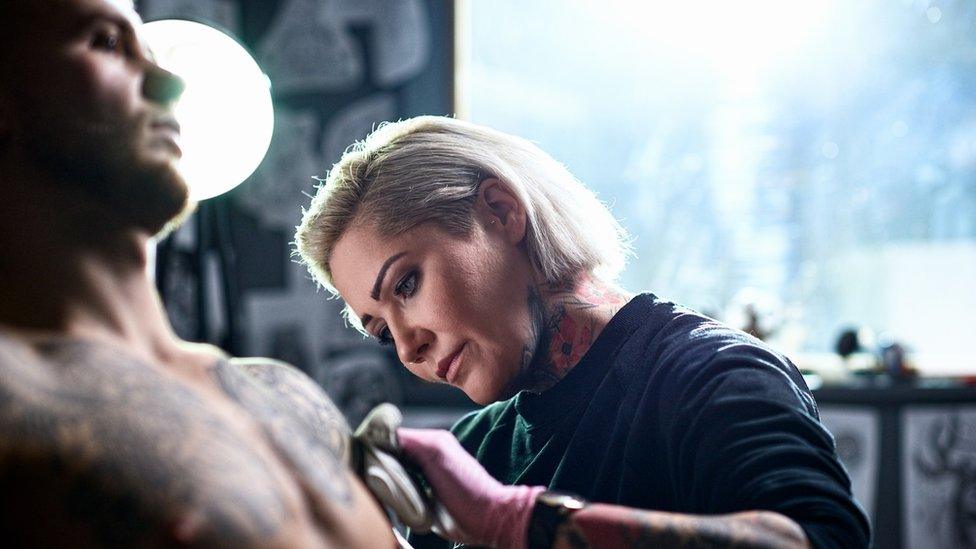
Louise says she thinks all professionals who work one-to-one with people should receive training, including tattoo artists and hairdressers
Louise said she does not think instructors need to become therapists but "we do need to to be able to help people".
She said working with young people meant instructors needed support in order to direct them to the most appropriate services, adding that this should ne available to anyone in public facing jobs such as hairdressers, tattoo artists and nail technicians.
"I see it along the lines of first aid training and I think in this day and age we're all responsible for helping other people."
'My instructor helped me through my divorce'
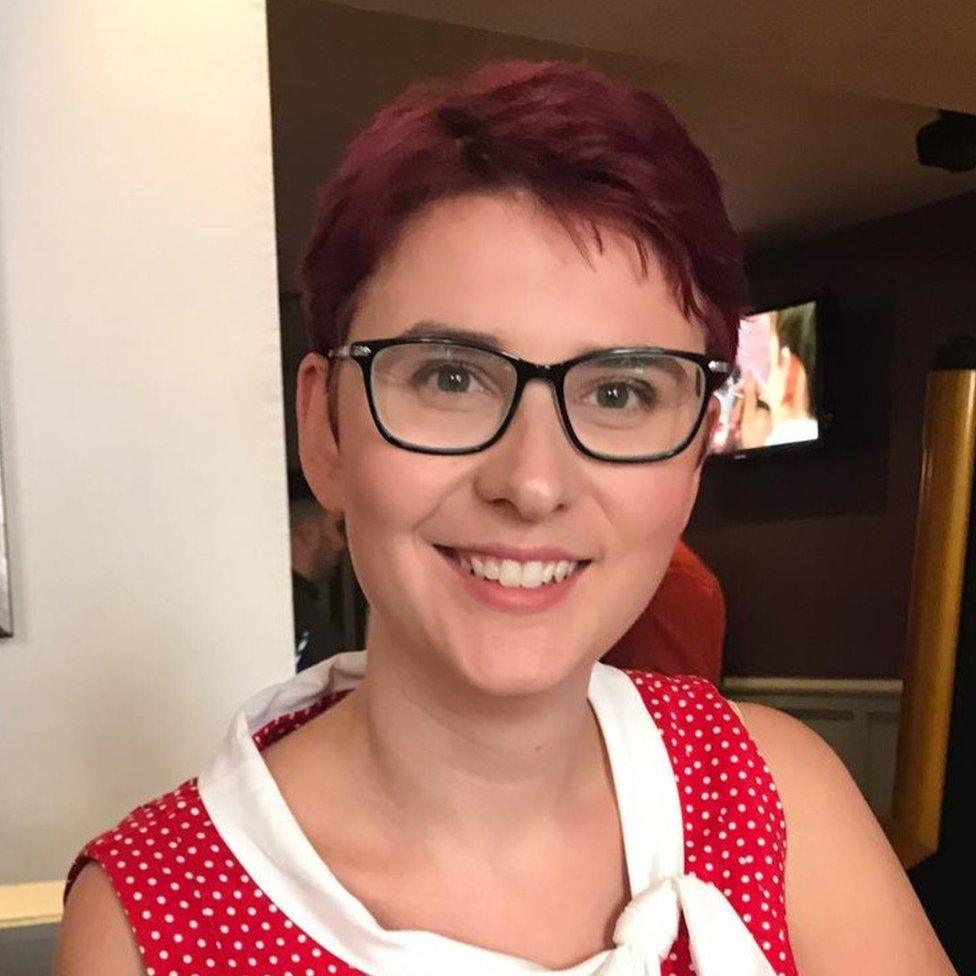
Emma Lamorte went through some big life changes while learning to drive

For Emma Lamorte, 33, who lives in Caerphilly, learning to drive was "quite stressful" and it fell at the same time as Covid restrictions forced delays, as well as her divorce.
"I'm quite an anxious person," she said, "and I didn't have a very easy journey with driving".
"My first test got cancelled because I broke my wrist and my second test was booked the week that we went into lockdown, so it got cancelled and then there was a very long wait before I could get started again."
She said the support she received was "so valuable" at a difficult time and thinks it should be extended to other professions.
"I don't think I would have got through the whole process without her," she said.
"More trained professions would be a useful thing, because it's not a therapy session but it's kind of similar because you're with someone who is completely removed from your life, for an hour a week, and maybe you do talk about everything that's going on with your life.
"I think a large portion of stress relief is just being able to to get it out sometimes and just be able to say it to someone that's kind of impartial.
"Some people are probably in situations where they maybe don't have anyone to talk to, and whether it's the hairdresser or the driving instructor, it may be the only person who's actually sat and listened to that person."
Alex Anderson, 22, learned to drive in Cardiff and said training could be particularly beneficial for younger students as First-time drivers "tend to be, on the whole, quite young".
She acknowledged that it was not the instructor's "job entirely" and support systems need to be improved more widely to support young people's mental health.
"It's a really broad discussion but it could be a really beneficial start."
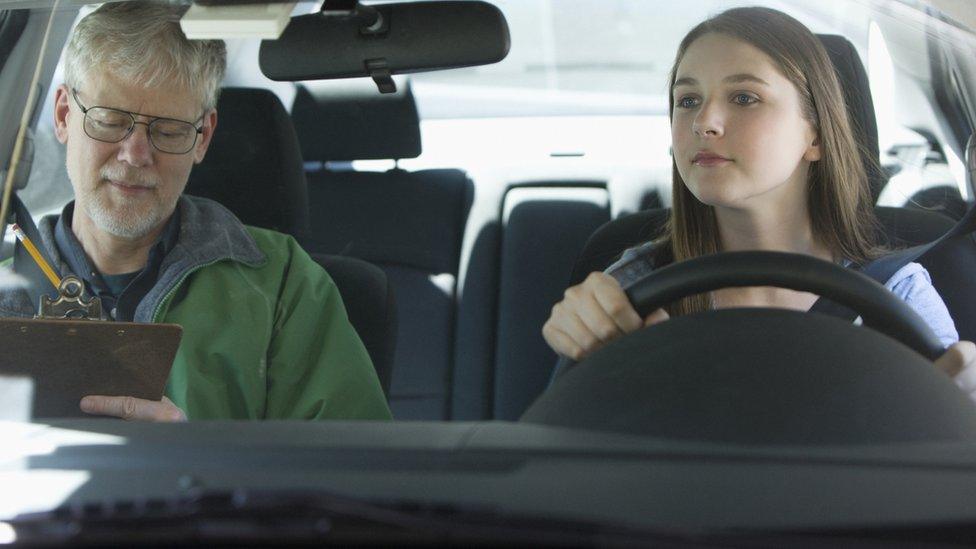
Samaritans Cymru say people do not always want to speak to a doctor so help elsewhere could go a long way
Emma Gooding from Samaritans Cymru said Covid, the cost of living and "widening inequalities for the most vulnerable people in Wales" meant many people were "struggling to cope".
She said people were often reluctant to go to their GP or mental health services so it was "really important that workplaces know how to support their customers".
"At Samaritans Cymru, we believe in the power of human connection and listening and it's what our service is based on."
The Welsh government said: "We are providing £1.4m to support the Time To Change Wales programme, external for another three years, which works to tackle stigma and encourage more people to talk about mental health and know where to get help and support."

AMY DOWDEN OPENS UP: The Strictly star reveals all about her experience with body shaming
THE TAKEAWAY: The labour and love that goes into takeaway food

- Published10 August 2022
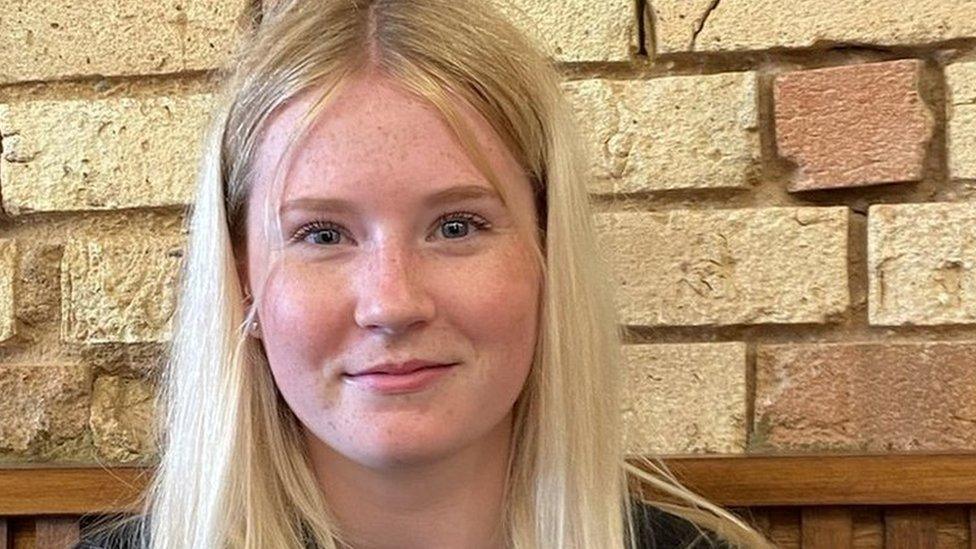
- Published12 December 2022
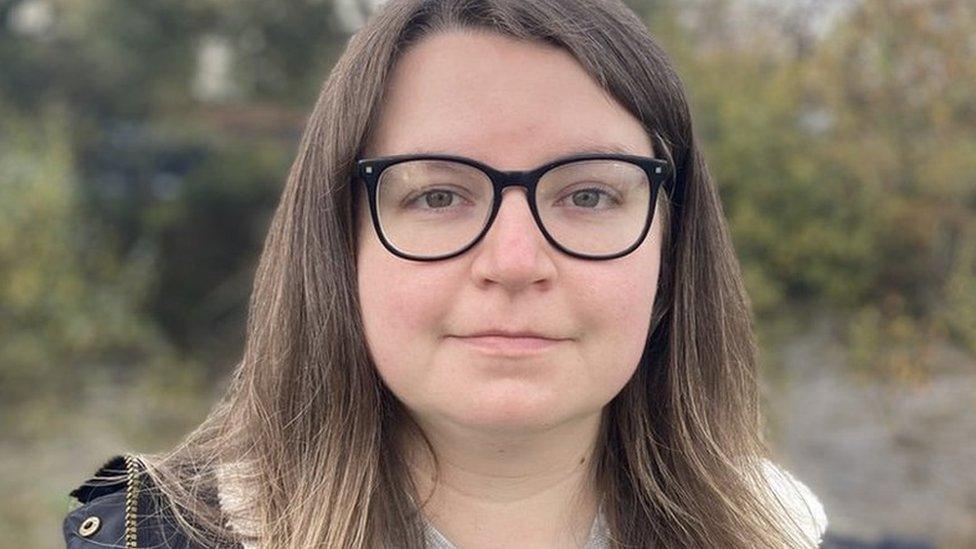
- Published7 July 2022

- Published24 July 2022
